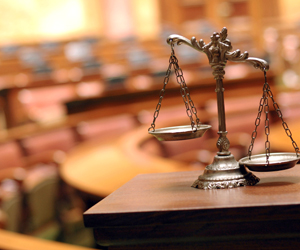 Feb. 8, 2016 – The Wisconsin Supreme Court has asked the co-chairs of the Wisconsin Joint Legislative Council to study how to improve access to civil legal services for people who cannot afford a lawyer, the court noted in a press release last week.
Feb. 8, 2016 – The Wisconsin Supreme Court has asked the co-chairs of the Wisconsin Joint Legislative Council to study how to improve access to civil legal services for people who cannot afford a lawyer, the court noted in a press release last week.
The Wisconsin Joint Legislative Council, co-chaired by Rep. Joan Ballweg (R-Markesan) and Sen. Mary Lazich (R-New Berlin), establishes committees to study major issues and to recommend legislation for introduction every two years.
In a letter to the co-chairs, the justices unanimously requested that the Joint Legislative Council establish a study committee on improving access to civil legal services.
“The Supreme Court recognizes that thousands of Wisconsinites are unable to afford legal services in civil cases,” the court wrote. “The Court believes that legal services are critical in many of these cases and that too often they are not provided.”
The press release notes that in 2007, the State Bar of Wisconsin conducted an extensive study, Bridging the Justice Gap: Wisconsin’s Unmet Legal Needs.
That report found that more than 500,000 Wisconsin residents faced serious civil legal problems without the assistance of a lawyer or other legal professional.
Another report in 2013 – The State of Equal Justice in Wisconsin by the Wisconsin Access to Justice Commission – supported the study’s findings and noted the decrease in state funding for civil legal services, down to zero, starting in 2011.
Responding in 2009, the court imposed a $50 annual assessment on attorneys to help fund civil legal services. The assessment, collected by the State Bar through annual dues statements, goes to the Wisconsin Trust Account Foundation (WisTAF).
At the State Bar’s request, the court also created of the Wisconsin Access to Justice Commission (WATJ) in 2009, “to develop and encourage means of expanding access to the civil justice system for unrepresented low-income Wisconsin residents.”
In 2014, the supreme court approved an increased fee for pro hac vice admission, from $50 to $250, with $100 going to WisTAF and $50 to WATJ. And the court is currently considering a State Bar-backed WATJ petition to require 50 percent of “residual” class action settlement funds to be directed to the WisTAF to fund civil legal services.
As the court notes in its release, it has considered several other rule changes over the years to increase access to civil legal services, including a so-called Civil Gideon petition, which would require courts to appoint counsel in certain civil cases.
The court acknowledged the need for increased legal services but did not approve the Civil Gideon petition for lack of funding. Funding remains an issue for the court system.
In its press release, the court noted that one objective of a proposed Wisconsin Joint Legislative Council study committee would be to “brainstorm other possible sources of assistance and help to plan the most effective means of delivering services.”
